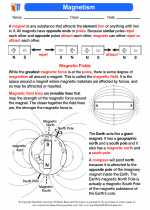Hydraulics
Hydraulics is a branch of science and engineering that deals with the mechanical properties of liquids. It focuses on the behavior of fluids and how they can be used to transmit force and energy.
Key Concepts
- Fluid Mechanics: The study of how fluids (liquids and gases) behave and interact with their surroundings.
- Pascal's Law: States that a change in pressure applied to an enclosed fluid is transmitted undiminished to all portions of the fluid and to the walls of its container.
- Hydraulic Systems: Systems that use liquid to transmit power.
- Hydraulic Machinery: Machines and equipment that utilize hydraulic power for operation, such as hydraulic lifts, cranes, and brakes.
Applications
Hydraulics has numerous practical applications, including:
- Hydraulic machinery in construction and manufacturing
- Hydraulic brakes in vehicles
- Hydraulic lifts in car repair shops and elevators
- Hydraulic systems in aircraft and aerospace technology
Study Tips
When studying hydraulics, it's important to:
- Understand the properties of liquids, including viscosity, pressure, and flow.
- Learn about Pascal's Law and how it applies to hydraulic systems.
- Practice solving problems involving hydraulic force and pressure.
- Explore real-world examples of hydraulic applications to gain a deeper understanding of the concepts.
Conclusion
Hydraulics is a fascinating field that plays a crucial role in various industries and technologies. By understanding the principles of fluid mechanics and hydraulic systems, you can appreciate the impact of hydraulics on our daily lives.
.◂Science Worksheets and Study Guides Sixth Grade. Magnetism
Study Guide Magnetism
Magnetism  Activity Lesson
Activity Lesson Magnetism
Magnetism  Worksheet/Answer key
Worksheet/Answer key Magnetism
Magnetism  Worksheet/Answer key
Worksheet/Answer key Magnetism
Magnetism  Worksheet/Answer key
Worksheet/Answer key Magnetism
Magnetism  Worksheet/Answer key
Worksheet/Answer key Magnetism
Magnetism  Vocabulary/Answer key
Vocabulary/Answer key Magnetism
Magnetism 

 Activity Lesson
Activity Lesson
 Worksheet/Answer key
Worksheet/Answer key
 Worksheet/Answer key
Worksheet/Answer key
 Worksheet/Answer key
Worksheet/Answer key
 Worksheet/Answer key
Worksheet/Answer key
 Vocabulary/Answer key
Vocabulary/Answer key

The resources above cover the following skills:
EARTH AND SPACE SCIENCE
Earth’s Systems
Develop and use models of Earth’s interior composition to illustrate the resulting magnetic field (e.g., magnetic poles) and to explain its measureable effects (e.g., protection from cosmic radiation).